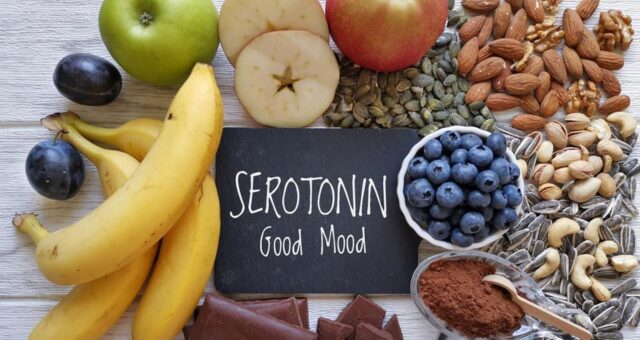Medically Reviewed by Lucas Rosa, PhD in Molecular Biology
When you crush a goal, fall in love, or simply eat your favorite dessert, there’s a good chance dopamine is involved.
Often called the “motivation molecule” or “feel-good neurotransmitter,” dopamine plays a vital role in how we think, move, and feel pleasure. But too little or too much can throw your mood, focus, and even physical health off track.
In this blog, we’ll break down what dopamine is, what it does in the body, and the most natural and effective ways to keep it in balance.
What Is Dopamine?
Dopamine is a neurotransmitter and hormone, which means it is a chemical messenger that helps transmit signals in the brain and nervous system. It’s part of your brain’s reward system and is closely tied to motivation, focus, mood, learning, and movement.
Think of dopamine as the brain’s way of saying “Hey, that felt good – do it again!” It reinforces behaviors that help you survive and thrive, from eating and exercising to connecting with others.
What Does Dopamine Do in the Body?
Dopamine is involved in a surprising number of important functions:
- Motivation and Drive: It fuels your desire to set and achieve goals.
- Pleasure and Reward: It’s released when you experience joy or a sense of achievement.
- Focus and Attention: Dopamine helps you stay mentally sharp and alert.
- Memory and Learning: It plays a role in retaining information.
- Motor Control: It regulates movement.
- Parkinson’s disease, for instance, is linked to dopamine deficiency in certain parts of the brain.
- Mood Regulation: Low dopamine is often associated with fatigue, low mood, and lack of enthusiasm.

Signs of a Dopamine Imbalance
The following are signs that dopamine levels are too low:
- Fatigue or Low Energy
- Loss of Interest or Motivation
- Brain Fog or Poor Concentration
- Low Mood or Apathy
- Food Cravings, especially for sugar and caffeine
When dopamine is too high (often due to overstimulation like substance use or constant social media hits), it may lead to:
- Risk-Taking Behaviors
- Anxiety or Restlessness
- Addictive Tendencies
- Poor Impulse Control
BALANCE IS KEY. Too little, and you feel stuck. Too much, and things feel chaotic.
Natural Ways to Keep Dopamine Balanced
Good news, there are proven, natural ways to support healthy dopamine levels. Here’s how to keep your motivation and mood humming along smoothly:
1. Eat Dopamine-Friendly Foods
Dopamine is made from the amino acid tyrosine, found in many protein-rich foods. To make dopamine, your body also needs nutrients like magnesium, iron, zinc, and B vitamins. (1)
Great food choices include:
- Eggs, Fish, Chicken, Turkey
- Lentils, Almonds, Pumpkin Seeds
- Bananas, Avocados, Dark Chocolate
- Beets (contain betaine, which supports mood)
Food To Avoid: Avoid excess sugar and ultra-processed foods, which can spike dopamine temporarily but lead to long-term imbalances.
2. Get Regular Exercise
Regular exercise doesn’t just feel good, it boosts dopamine production naturally. Physical activity improves both mood and focus by increasing the release of dopamine and its receptors. Best options include:
- Aerobic Workouts (jogging, biking, swimming)
- Strength Training
- Dancing or Martial Arts
Even 20–30 minutes a few times a week makes a real difference. (2)

3. Set Small, Achievable Goals
Each time you complete a task, big or small, your brain gets a dopamine hit. That’s why checking off a to-do list feels so good. Try breaking big goals into smaller ones and celebrate small wins. (3)
You can use a journal or an app to track progress. This habit trains your brain to crave healthy success, not quick dopamine spikes from screens or junk food.
4. Get Enough Sleep
Dopamine levels follow a natural rhythm, rising in the morning and falling at night. Poor sleep disrupts this cycle, making it harder to concentrate or feel motivated during the day. Aim for at least 7-9 hours of quality sleep per night. (4)
Creating a sleep routine can help you do this. Try:
- Sticking to regular sleep/wake times
- Avoiding screens 1 hour before bed
- Keeping your room cool and dark
5. Take a Break from Dopamine Overload
Phones, social media, video games, and processed snacks give your brain frequent dopamine bursts. But too much stimulation can make real-life pleasures feel dull.
Try a “dopamine detox” once a week:
- No screens for a few hours
- Go for a walk in nature
- Read a book, play music, or do something creative
This helps reset your reward system and makes everyday activities feel more rewarding again.
6. Practice Meditation and Mindfulness
Meditation helps regulate your brain’s reward system. It calms the constant craving for dopamine hits and helps you feel content in the present moment. Try starting with just 5–10 minutes of deep breathing or body scanning each day.
Studies show that consistent mindfulness practices boost dopamine over time. (5)
7. Connect With Others
Healthy relationships and emotional connections can increase dopamine naturally. Sharing laughter, engaging conversations, or physical affection all help reinforce your brain’s reward system. Even small things count:
- Call a friend
- Give someone a compliment
- Volunteer
- Do something kind for others

Conclusion
Dopamine is your inner drive that fuels motivation, pleasure, and clear thinking. It is your body’s way of helping you stay focused, motivated, and emotionally balanced.
By understanding how this important brain chemical works and taking steps to naturally support it, you’re not only boosting your mental health but also improving your energy, clarity, and quality of life.
You can naturally balance it by eating nutrient-rich foods, moving your body, getting quality sleep, avoiding overstimulation, and finding joy in everyday achievements. With consistent habits, you’ll feel more focused, resilient, and energized from the inside out.
Remember: real, lasting dopamine rewards come from purposeful living, not endless scrolling or shortcuts. Build healthy habits, celebrate progress, and give your brain the balance it craves.
References
- Volkow ND, Wang GJ, Baler RD. Reward, dopamine and the control of food intake: implications for obesity. Trends Cogn Sci. 2011 Jan;15(1):37-46. doi: 10.1016/j.tics.2010.11.001. Epub 2010 Nov 24. PMID: 21109477; PMCID: PMC3124340. https://pmc.ncbi.nlm.nih.gov/articles/PMC3124340/.
- Marques A, Marconcin P, Werneck AO, Ferrari G, Gouveia ÉR, Kliegel M, Peralta M, Ihle A. Bidirectional Association between Physical Activity and Dopamine Across Adulthood-A Systematic Review. Brain Sci. 2021 Jun 23;11(7):829. doi: 10.3390/brainsci11070829. PMID: 34201523; PMCID: PMC8301978. https://pmc.ncbi.nlm.nih.gov/articles/PMC8301978/.
- Bromberg-Martin ES, Matsumoto M, Hikosaka O. Dopamine in motivational control: rewarding, aversive, and alerting. Neuron. 2010 Dec 9;68(5):815-34. doi: 10.1016/j.neuron.2010.11.022. PMID: 21144997; PMCID: PMC3032992. https://pmc.ncbi.nlm.nih.gov/articles/PMC3032992/.
- Lim MM, Xu J, Holtzman DM, Mach RH. Sleep deprivation differentially affects dopamine receptor subtypes in mouse striatum. Neuroreport. 2011 Jul 13;22(10):489-93. doi: 10.1097/WNR.0b013e32834846a0. PMID: 21642879; PMCID: PMC3116438. https://pmc.ncbi.nlm.nih.gov/articles/PMC3116438/.
- Kjaer TW, Bertelsen C, Piccini P, Brooks D, Alving J, Lou HC. Increased dopamine tone during meditation-induced change of consciousness. Brain Res Cogn Brain Res. 2002 Apr;13(2):255-9. doi: 10.1016/s0926-6410(01)00106-9. PMID: 11958969. https://pubmed.ncbi.nlm.nih.gov/11958969/.
Check Out
HF Swaps
Better products for better hormone health.









